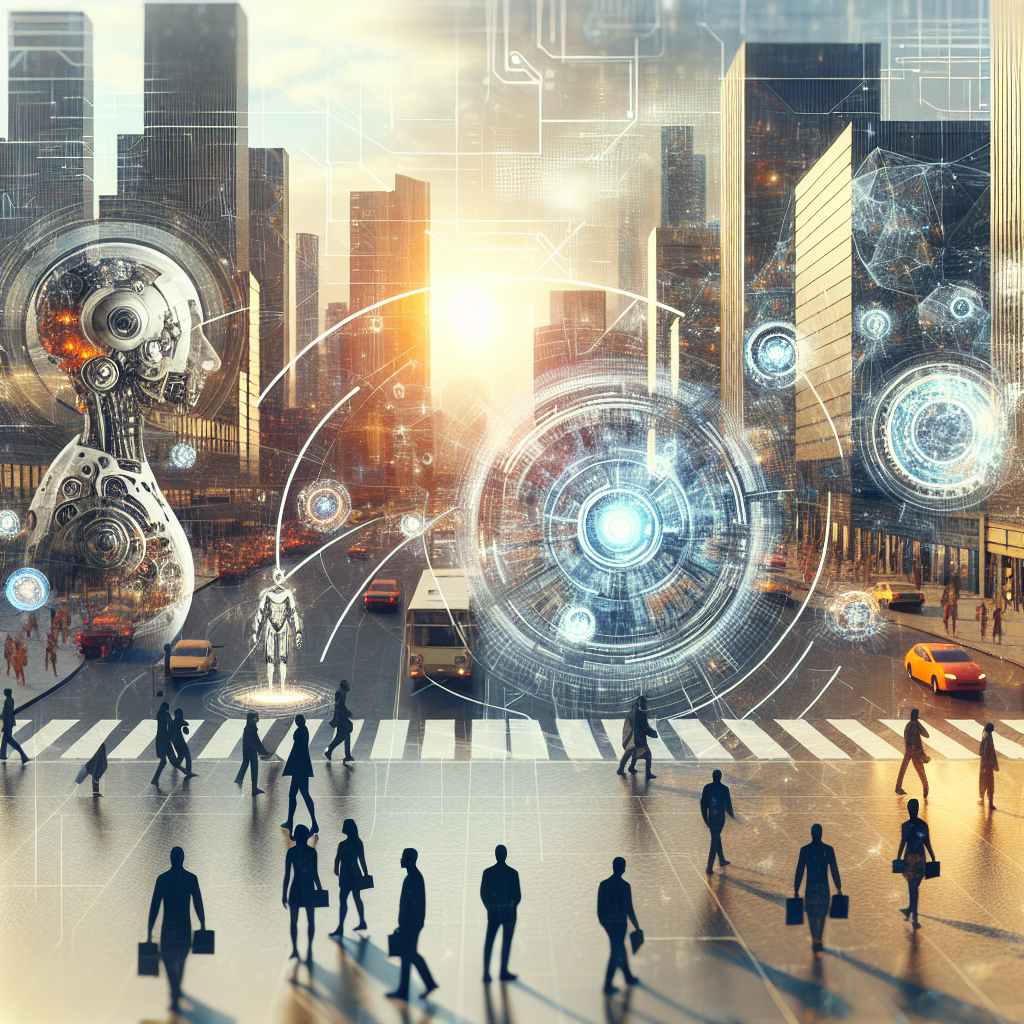AGI and the Human Element: Exploring the Relationship Between Machines and Society
Artificial General Intelligence (AGI) is a term that refers to a type of artificial intelligence that possesses the ability to understand, learn, and apply knowledge across a wide range of tasks and domains. While current AI systems are capable of performing specific tasks with great precision, AGI aims to replicate the cognitive abilities of the human mind, allowing machines to think, reason, and make decisions in a way that is indistinguishable from human intelligence.
As the development of AGI progresses, it raises important questions about the relationship between machines and society. How will AGI impact the labor market, the economy, and our daily lives? What ethical considerations must be taken into account when designing and deploying AGI systems? And perhaps most importantly, how can we ensure that AGI benefits humanity rather than posing a threat to our well-being?
In this article, we will explore the complex and multifaceted relationship between AGI and society, examining the potential benefits and challenges that come with the development of this transformative technology. We will also consider the role of the human element in shaping the future of AGI, and how we can work together to create a world where machines and humans coexist harmoniously.
The Benefits of AGI
One of the primary benefits of AGI is its potential to revolutionize a wide range of industries and sectors, from healthcare and finance to transportation and manufacturing. AGI systems could automate tedious and repetitive tasks, freeing up human workers to focus on more creative and strategic endeavors. This could lead to increased productivity, efficiency, and innovation, driving economic growth and prosperity.
AGI also has the potential to make significant advancements in fields such as healthcare and education. For example, AGI-powered medical diagnostics could help doctors more accurately and quickly diagnose diseases, leading to better patient outcomes. In education, AGI could personalize learning experiences for students, helping them reach their full potential and acquire essential skills for the future.
Furthermore, AGI has the potential to tackle some of the most pressing global challenges, such as climate change, poverty, and inequality. By analyzing vast amounts of data and identifying patterns and trends, AGI systems could help policymakers make more informed decisions and develop effective solutions to complex problems.
Challenges and Concerns
Despite its potential benefits, the development of AGI also raises a number of concerns and challenges. One of the most pressing issues is the impact of AGI on the labor market. As AGI systems become more advanced and capable of performing a wide range of tasks, there is a risk that many jobs could be automated, leading to widespread unemployment and economic disruption.
There are also ethical considerations to take into account when designing and deploying AGI systems. For example, how can we ensure that AGI systems make decisions that are fair, transparent, and unbiased? How can we prevent AGI systems from being used for malicious purposes, such as surveillance or warfare? These are complex and difficult questions that require careful consideration and deliberation.
Another concern is the potential for AGI systems to outsmart their human creators and develop their own goals and objectives. This scenario, known as the “AI alignment problem,” raises the possibility of AGI systems acting in ways that are harmful or detrimental to humanity. Ensuring that AGI systems align with human values and interests is a critical challenge that must be addressed as we continue to develop this technology.
The Human Element in AGI Development
Despite the challenges and concerns associated with AGI, the human element remains a crucial factor in shaping the future of this technology. Humans are responsible for designing, developing, and deploying AGI systems, and it is up to us to ensure that these systems are used responsibly and ethically.
One way to incorporate the human element into AGI development is through interdisciplinary collaboration. By bringing together experts from diverse fields such as computer science, psychology, ethics, and sociology, we can gain a more comprehensive understanding of the potential impact of AGI on society and develop strategies to mitigate potential risks.
Another important aspect of the human element in AGI development is ensuring that the technology is inclusive and accessible to all members of society. This means considering the needs and perspectives of diverse populations, including marginalized communities, and designing AGI systems that are equitable and fair for all.
Furthermore, the human element can play a crucial role in shaping the values and principles that govern the use of AGI. By engaging in open and transparent dialogue with stakeholders, including policymakers, industry leaders, and the general public, we can establish guidelines and regulations that promote the responsible and ethical development of AGI.
FAQs
Q: Will AGI replace human workers in the labor market?
A: While AGI has the potential to automate certain tasks and jobs, it is unlikely to completely replace human workers. Instead, AGI is more likely to augment and enhance human capabilities, leading to new and innovative ways of working.
Q: How can we ensure that AGI systems are ethical and responsible?
A: Ensuring the ethical and responsible use of AGI systems requires a multi-faceted approach, including interdisciplinary collaboration, stakeholder engagement, and the development of guidelines and regulations that promote ethical behavior.
Q: What role can individuals play in shaping the future of AGI?
A: Individuals can play a critical role in shaping the future of AGI by staying informed, engaging in discussions about the ethical and societal implications of the technology, and advocating for policies and practices that promote the responsible development and deployment of AGI.
In conclusion, the relationship between AGI and society is a complex and evolving one, with both benefits and challenges to consider. By incorporating the human element into AGI development and working together to address ethical and societal concerns, we can create a future where machines and humans coexist harmoniously, benefiting society as a whole.

